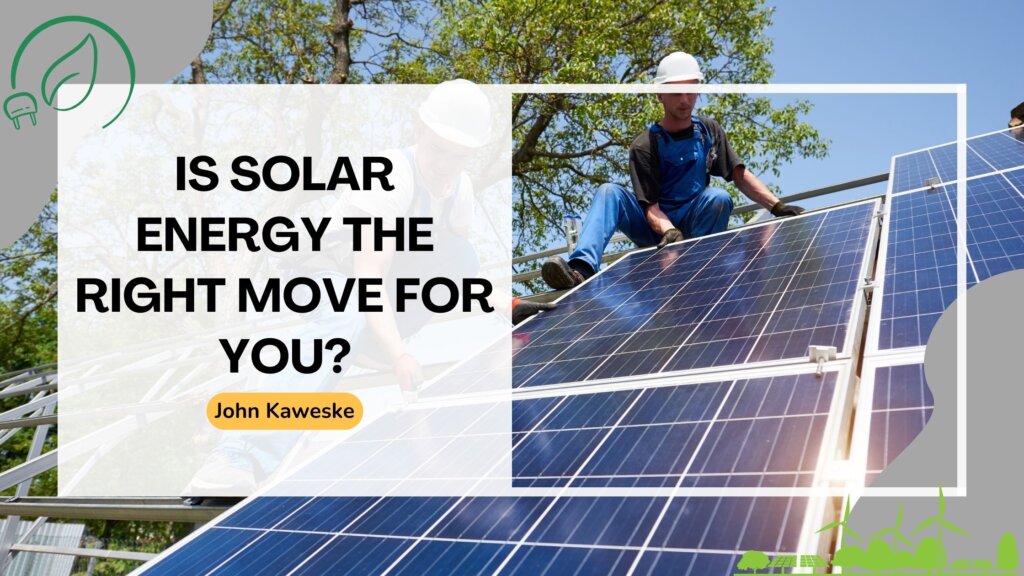Deciding whether solar energy is the right move for you requires careful consideration of various factors, including your location, energy needs, budget, and commitment to sustainability. Solar energy offers numerous benefits but may not be suitable for everyone.
Here are some key points to help you determine if solar energy is the right choice for your situation:
Location and Solar Potential:
Assess your location’s solar potential by considering the sunlight your area receives throughout the year and any potential shading issues from nearby buildings or trees. Regions with abundant sunshine are more conducive to maximizing the benefits of solar energy.
Energy Needs and Consumption:
Review your energy consumption patterns to understand how much electricity you use. Solar energy systems are most cost-effective for households with higher energy needs, as they can fully utilize the energy generated by solar panels.
Initial Investment and Financial Incentives:
Installing a solar energy system requires an initial investment, which can vary based on the size of the system and installation costs.
Long-Term Savings:
Solar panels have a long lifespan, typically 25 to 30 years or more. Consider the long-term savings on your electricity bills and the potential for locking in a fixed energy cost and reducing your reliance on fluctuating utility rates.
Grid Connection and Energy Storage:
Evaluate your access to the power grid and the availability of energy storage solutions in your area. Being grid-connected allows you to benefit from net metering, where excess energy can be sold back to the grid. In contrast, energy storage systems enable you to store excess energy for use when solar production is low.
Roof Condition and Orientation:
Assess the condition and orientation of your roof, as solar panels are typically installed on rooftops. A sturdy roof with good sun exposure is essential to maximize the efficiency of the solar energy system.
Maintenance and Warranty:
Solar panels generally require minimal maintenance, but it’s essential to understand the warranty and maintenance requirements of the specific solar energy system you are considering.
Future Plans and Lifestyle:
Consider your plans and how they might impact your solar energy investment. If you plan to move or significantly change your energy needs within a few years, it may affect the cost-effectiveness of the installation.
Research and Consultation:
Do thorough research on solar energy options, local incentives, and available installers. Seek advice from reputable solar energy companies and explore customer reviews to ensure you make an informed decision.
Solar energy can be a wise investment for many homeowners, providing long-term energy savings, reduced environmental impact, and potential financial incentives. However, evaluating your specific circumstances, energy needs, and location is crucial to determine if solar energy is the right move for you.

